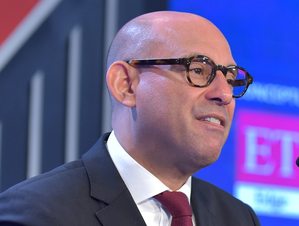New Delhi, 15 February (IANS). India is trying to achieve an ambitious target of 500 GW non-Givash fuel-based energy capacity by 2030 set by Prime Minister Narendra Modi, while according to Simon Steel, Executive Secretary of the United Nations Framework Convention (UNFCCC) on Climate Change, India already Has become a ‘solar superpower’.
Speaking at a media event in the capital on Saturday, Steel said that while some governments talk, India takes priority to sustainable growth and energy security.
Under the leadership of PM Modi, India has become a global leader in the fight against climate change.
Steel highlighted India’s ambitious plans to expand the clean energy infrastructure at the ET Now Global Business Summit 2025.
Steel said, “It is important to ensure the access of energy while dealing with climate change. Under PM Modi’s leadership, India is expanding clean energy infrastructure, cutting carbon intensity and moving the green economy forward . “
He further stated that India’s commitment to get net zero emission is in line with global goals, which shows India’s dedication to sustainability.
The United Nations top executive said, “As the global climate action is intensifying, India is becoming stronger in sustainability, clean technology and climate finance and is installing itself as a future clean energy superpower. “
He said that by adopting the global clean energy boom even more strongly, India’s economic growth will be promoted.
The United Nations climate chief also urged India to develop an ambitious climate scheme covering its entire economy.
The country has already achieved a historic achievement by crossing the 100 GW installed solar energy capacity, which has strengthened the country’s condition as a global leader in renewable energy.
As of 31 January, India’s total installed solar capacity is 100.33 GW, with 84.10 GW under the implementation and additional 47.49 GW is under tendering.
India’s energy journey has been historical and inspiring in the last 10 years. Initiatives such as solar panels, solar parks and solar projects on the roof have brought revolutionary changes.
PM Surya Ghar Free Power Scheme is making solar energy a domestic reality on the roof and it is a game-changer in permanent energy, which strengthens every house with clean energy.
Launched in 2024, this scheme is close to solar power installations on 9 lakh roof, which will help in adopting clean energy solutions in homes across the country.
The country’s solar energy sector has seen a great increase of 3,450 percent in capacity in the last decade, which has increased from 2.82 GW to 100 GW in 2025 in 2014.
-IANS
SKT/ABM
